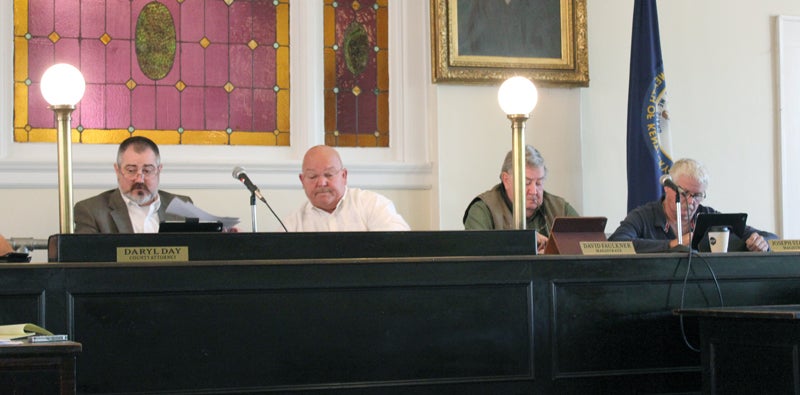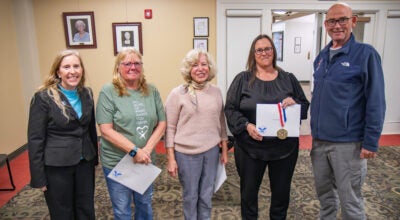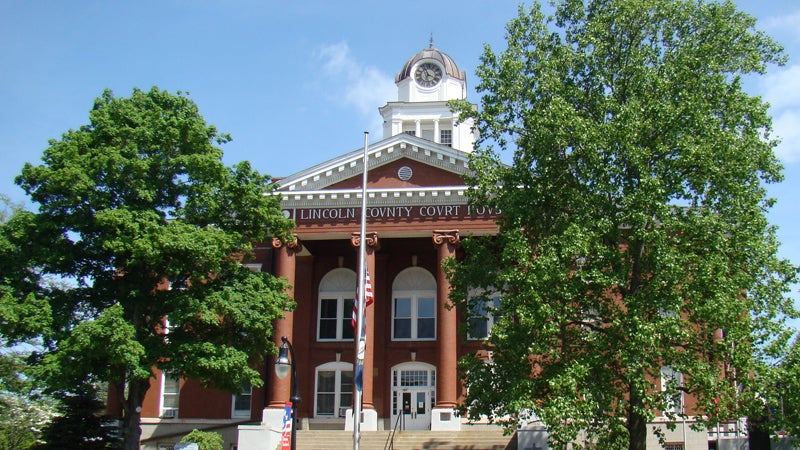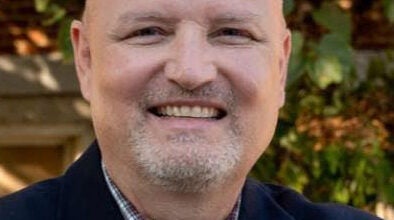Fiscal court votes to change funding for 9-1-1 dispatch services
Published 10:47 am Thursday, May 16, 2019

- File Photo by Abigail Whitehouse The Lincoln County Fiscal Court discusses water meter fees to fund Bluegrass 911 Communications.
|
Getting your Trinity Audio player ready...
|
STANFORD — On the Bluegrass 9-1-1 map, neighborhoods filled with older residents light up as most everyone has a landline.
However, in other neighborhoods, those with a growing population of younger families and residents open to changing phone service, the map is in the dark as nearly everyone has cellphones instead of landlines.
As landlines have rapidly disappeared across Lincoln County and Kentucky so has the traditional way of paying for 9-1-1 communications services.
Landline phone fees and cell phone fees were a source of funding for dispatch of emergency services for Lincoln County residents, but the landline phone fees of $4 per line and the cell phone fees of 75 cents per line in the county do not generate enough funds to cover the cost of 9-1-1 dispatch for all agencies, county and city.
For several years now, the Lincoln County Fiscal Court has been covering the shortfall from the general fund dollars, ranging from $60,000 a year to $80,000 a year.
This will no longer be the way 9-1-1 business is done.
On Tuesday, May 14, fiscal court voted in executive session to require each city – Stanford, Hustonville and Crab Orchard – to cover the cost of dispatching its agencies.
Lincoln County Attorney Daryl K. Day mailed out a letter to each of the mayors of those three cities informing them of the change which states, “This letter will serve as notice that as of July 1, 2019, the Lincoln County Fiscal Court will be entering into a new contract/interlocal agreement with the Garrard County Fiscal Court and Bluegrass Emergency Communications. This new agreement will alter the way that 9-1-1 dispatch services are provided to agencies in Lincoln County. Specifically, it will require payment of a fee from each agency that is dispatched by Bluegrass Emergency Communications, and the fee will be based on call volume.”
The letter details the current costs for Bluegrass Communications to dispatch agencies in Lincoln County, which is approximately $500,000. In the letter sent to Stanford, Day said that, based upon the last numbers he reviewed (fiscal year ending June 30, 2018), that “the City of Stanford accounts for approximately 35 percent of the volume, which calculates a fee of $175,000.” That volume was for Stanford police and fire.
As landline numbers started to dwindle, the fiscal court tried to implement a new funding source for 9-1-1 communications services, but the new ordinance in 2012 met with litigation and has been delayed ever since.
“We filed a lawsuit in 2012 to allow us to put water meter … Cell phones had taken over and the $4 landline fees were not enough to support 911, so we wanted to take it off the phones and put it on water meters,” said David Faulkner, Magistrate District 1. “We did the ordinance in 2012. The Garrard County Water District challenged that in court and it took five years before the high courts in Kentucky all ruled that yes, a water meter is a utility just like a phone line, and you can put 911 fees on that water meter or any utility.”
The lawsuit to put the 9-1-1 fee on the water meters was met with a lawsuit, City of Stanford, Kentucky, acting through the Stanford Water and Sewer Commission; City of Hustonville, Kentucky; and City of Crab Orchard, Kentucky vs. Lincoln County, Kentucky, James Woods Adams Jr.; David Faulkner; Lonnie Pruitt; Johnnie Padgett; and Joseph Stanley, in their official capacities.
“All we wanted to do was go through a utility that was not dried up, like landlines, so we can continue to fund 9-1-1, so we said, ‘Lets take it from this utility and put it on this utility’. That’s all we did and it was challenged by the water companies, not the cities.”
In the cities’ lawsuit, they did not contest the fact that Lincoln County may impose a fee to fund its 9-1-1 services, but argued that they weren’t controlled by the county.
“The courts ruled that they could do it, but the Stanford Water Company says ‘Well, the courts may say it’s legal, but you can’t make us do it.’ They agreed to do it if we paid them $20,000 a year. The Stanford Water Company wanted to turn it into a profit-making thing for them and all they have to do is add one line item on the water bill and write four checks a year. We, the court, weren’t getting a penny. All the money from the fees went to 9-1-1,” Faulkner said. “The only people paying for 9-1-1 service on their landlines were old people, who are afraid to give up their landline, and businesses.”
“They said, ‘You can’t make us do that, so we’re going to sue you.’ They’ve got a suit and it’s in the judge’s hands now.”
Not seeing an end to the continued delays, Faulkner said the court finally said enough is enough.
“We cannot go forward and continue to do it (fund 9-1-1) because we cannot afford to spend another $75,000 this year supporting Stanford, Crab Orchard …. And the cost keeps going up,” he said, noting that next year the cost could be $100,000 or more.
The court, which now includes Faulkner, Pruitt, Stanley and the newest member, Jeff Ruckel, voted unanimously to pull funding 9-1-1 for city agencies.
Judge Adams was not fully in favor of the move, saying he had hoped all the parties could come to an agreement. However, after years and years of delays, he understands the court’s reason for the change.
“I was hoping that there could be an agreement, but we have to find a dedicated revenue stream going forward,” Adams said. “I had asked them to put it off but the court decided they wanted to go forward with it.”
Adams says he doesn’t think that they can stop dispatching. “If there is a fire in Oakwood or Forest Hills (Stanford), services will be dispatched.” The ambulances serve all cities and the county.
“The fiscal court does not undertake this decision lightly or without serious thought about the possible outcome,” said Day. “However, it was and is noted that the fiscal court provides funding for many services for the benefit of the cities in Lincoln County, including a jail, dog warden, snow removal, blacktopping, money for the new Hustonville fire station, and other services.”
Faulkner said the taxpayers need to know that, “The cities cut themselves off, we didn’t cut them off.”
“We’re not cutting service to anybody. We’re going to continue to pay 9-1-1 service for our sheriff, EMS and fire. We’re going to pay the Lincoln County services, their dispatch. We’re just not going to pay Stanford police, Stanford fire, Hustonville police and fire,” he said. “We’re just not going to pay it. They can either pay it themselves or they can let us collect it off of water meters and be done with it. It won’t cost them a penny.”
“Right now it’s costing the taxpayers because we’ve been having to take money out to supplement it, which meant roads we couldn’t take care of and services we couldn’t provide because we were held up by what happened. All they have to do is say we’re going to drop this lawsuit.”





